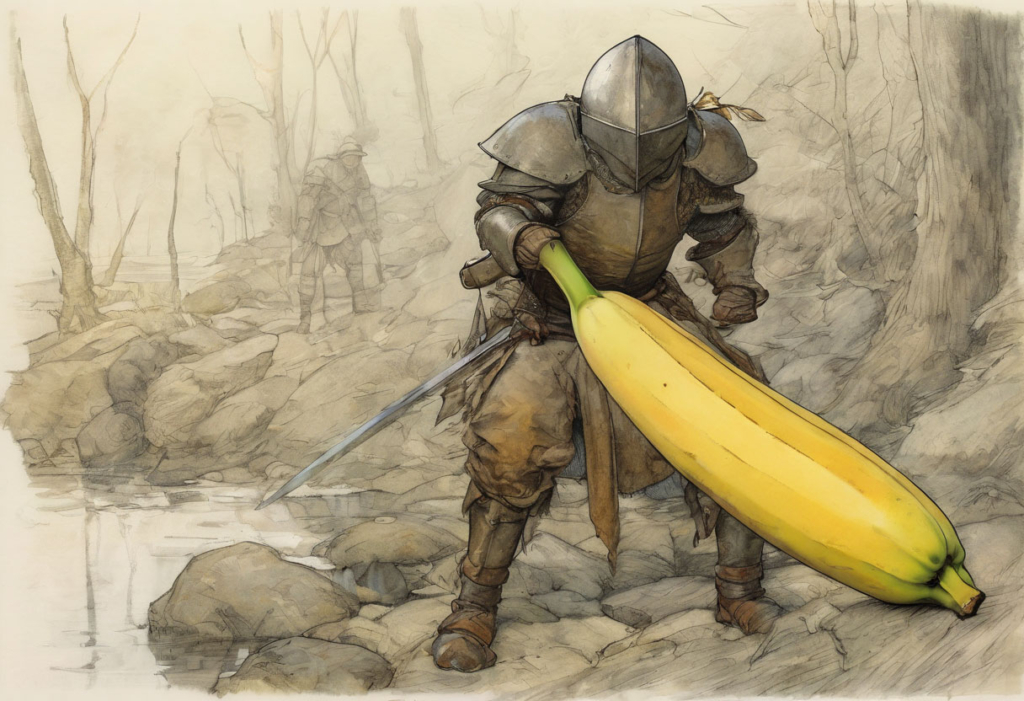In OSR+, there’s a 16.66% chance that any given roll will land on a 6 and explode, opening the door to dramatic wins for PCs. The problem is, rules-as-written, the dice explode for NPCs too—and that includes BBEGs and mobs. But it doesn’t have to be that way. Let’s talk about exploding dice and regulating swinginess in the fiction.
A big part of the pulp feel of the ruleset in OSR+ is its exploding dice: rolling that 6 is a doorway to dramatically impacting the fiction, especially in success checks where higher and higher results get you more and more control over what happens next. But critical success (and its evil twin, critical failure) is not for everyone. And by that I mean: for the GM!
But First! Your Objections...
I can understand the objections to critical rolls in general.
In trad games, a lot of people do away with critical failure, because A) interpreting critical failure as a failure of competence can feel unrealistic for skilled adventurers, and B) it feels unfair to players, especially when there's an equal chance of rolling a critical failure as there is any other number on the die.
Not to mention the problem with characters whose power derives from rolling a lot of dice (looking at you, fighters!).
In OSR+, critical failure has been designed to happen about less than half a percent of the time in any given roll: when you roll a 1 on a d6, that's a 16.67% chance, but in order to critically fail, you've got to roll snake eyes on 2d6 after rolling a 1. That results in less than a half a percent chance of a critical failure on any given roll.

A big part of making it work for the fiction, however, is not in the numbers. We have lots of options to interpret what critical failure means other than your PC is incompetent, and the GM is encouraged to pick one those options rather than resort to "you accidentally stabbed your friend."
In playtesting, I've found that critical failure is necessary to balance the inherent mechanical advantage players have given the way critical success works. Even though there's a huge disparity between the chance of absolutely killing the roll (16.67% chance) and things going sideways (half a percent chance), in my experience, players don't feel that way in the moment: to them, the chance of screwing up is equal despite the numbers. This preserves the dramatic tension in every roll, even when the PCs have the numbers overwhelmingly in their favor.
Okay, So But What About NPCs?
Which brings us to the question at hand: if the PCs can explode and critically fail, can the NPCs do the same?
The answer, at least for me, is yes and no. And it depends.
First: it depends on what sort of game you're running. A Quest of Queens (the default OSR+ campaign setting), for example, is an epic fantasy. It's high adventure, sword-and-sorcery style, where the PCs are striving to become legendary heroes and the fate of the world is at stake. This is not a game about attrition, the end of the world, or dungeon crawling. Because the goal of playing in this campaign (see: narrative fulfillment) is for the PCs to have epic moments, we want them to prevail rather handily over mobs of baddies and not go out like Jon Snow getting shanked to death in a dank alleyway.
So for A Quest of Queens, NPCs don't explode on a 6, unless they are A) a BBEG, or B) unable to succeed in a roll against the PCs unless they explode. But the inverse is not true: NPCs do have to confirm a critical if they roll a 1. This gives the players an inherent advantage against the evils of the game world, and it's a deliberate choice that has to do with the genre and the expectations of play.
On the other hand: if you're playing in a dungeon-crawling apocalypse, maybe you want things to be slated against your PCs.
In this case, maybe every NPC can explode, which implies that everything is dangerous and nothing is to be taken for granted. This was the case in the campaign we played called The Plunge is a campaign setting slated to be released in the future! In fact, this campaign is also fully recorded, so you'll be able to watch along with the actual play when it's released. The Plunge , where the GM Will Karafelis depicted a city in freefall after a disaster struck that plunged the world into darkness. When you've got roving hordes of cannibals, a usage mechanic where your weapons might break at any time, and a severe lack of resources, every encounter with a random mook becomes life-threatening, and so allowing mobs to explode reinforces the expectations of play.
 Armor
Armor Classes
Classes Conflicts
Conflicts Ethos
Ethos Flaws
Flaws Glossary
Glossary Kits
Kits Maleficence
Maleficence Origins
Origins Shields
Shields Skills
Skills Spells
Spells Stances
Stances Status Effects
Status Effects Tactics
Tactics Talents
Talents Techniques
Techniques Treasure
Treasure Weapons
Weapons











 Hall of Heroes
Hall of Heroes Hall of Legends
Hall of Legends Dungeons & Flagons
Dungeons & Flagons
0 Comments on
To Explode, or Not to Explode, That is the Question